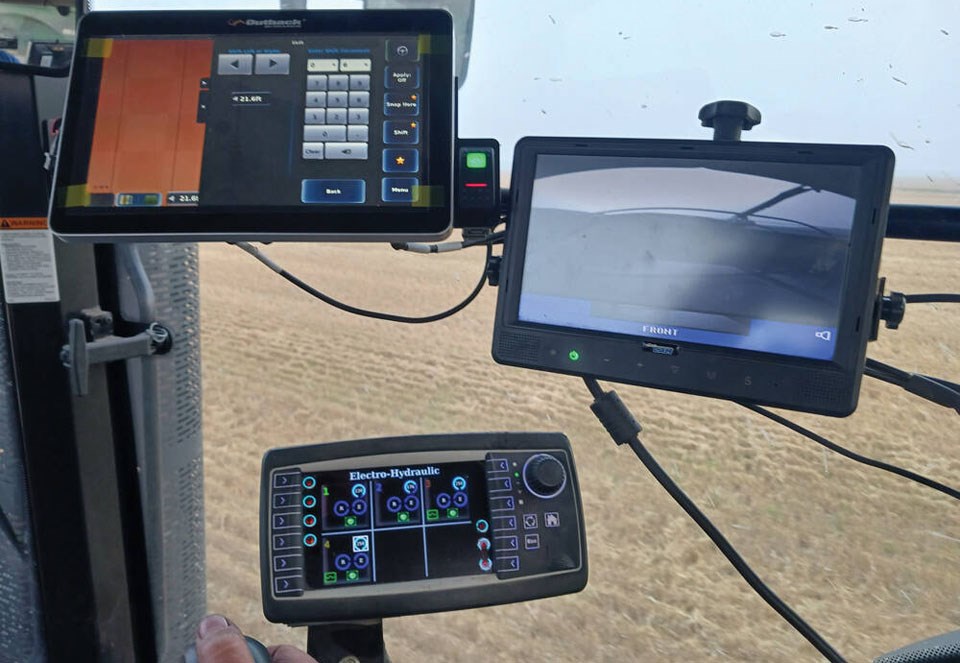WESTERN PRODUCER — The Canadian Agricultural Policy Institute and EMILI have some ideas what policy supporting digital agriculture could look like.
Unfortunately, says a June 19 report published by the two organizations, Canada has dropped the ball.
As well as panning what they said is a fragmented and piecemeal approach that has contributed to patchy adoption of technology, the two also have a list countries where they say policy has seen good results from which Canada can learn.
United States
The digital agriculture framework’s funding model in the U.S. explicitly requires collaboration between academics, private innovators and rural communities, the report said. The ReConnect Progam funds broadband in underserved areas through loans and grants to local governments, Indigenous groups and others.
Data governance falls under the U.S. Department of Agriculture’s 2024 Data Strategy, which mandates that farmers retain ownership of data collected through USDA-supported technology.
The CAPI/EMILI report’s authors suggested Canada consider introducing “more meaningful partnership requirements” in federal and provincial programs that mirror U.S. models.
“This helps address the challenge of translating lab innovations to farming applications.”
Australia
Australia’s Digital Foundations for Agriculture Strategy, enacted in 2022, set a national target of A$100 billion in total farmgate revenue by 2030.
The strategy, while national, allows each state to tailor initiatives to regional needs. Funding for research and innovation totals about $800 million per year through rural research and development government corporations. The funding is a mix of government investment and industry levies.
Separate programs, such as the Climate-Smart Agriculture Program, also include funding streams for tools and technology.
Canada should consider unifying cost-shared provincial programs related to digital agriculture under a national strategy, the report said.
The Netherlands
Digital agriculture in the Netherlands falls under its Eurpean Union Common Agricultural Policy funding.
The Dutch government provides financial incentives to farmers who participate in “innovation training,” the report said. The government also supports small and medium-sized farms to incorporate digital technology.
Agriculture data governance in the Netherlands ties into the EU Code of Conduct on Agricultural Data Sharing, which encourages transparency and user rights, the Canadian report said.
The report suggested integrating digital tool extension services into funding and programs in the next federal-provincial-territorial agricultural policy framework.
France
The French government has allocated 2.3 billion euros (C$3.66 billion) to ag tech startups through its France 2030 plan. It also offers a 30 per cent tax credit for research and development costs, up to 100 million euros per year.
“This strategy has contributed to France’s success in retaining a high percentage of its ag tech intellectual property,” the report said.
France’s Pays de la Loire region offers farmers vouchers to support them getting advice from experts and to cover costs related to adopting new digital solutions.
Other programs include prioritizing rural 5G deployment through telecom partners and subsidizing farmers in underserved areas to install solutions such as satellite broadband.
Canada could consider offering better tax incentives to tech developers and launching an “innovation voucher program” to increase digital ag adoption and access to extension services, authors suggest.
United Kingdom
The U.K.’s Farming Innovation Programme funds research into “blockchain-enabled sustainability solutions” that allow farmers to monetize environmental benefits such as methane emissions reduction. Its Regulatory Innovation Office works to simplify approvals for ag tech tools and projects, the report noted.
The U.K. has also improved agricultural data governance practices through the U.K. Farm Data Principles certification, which ensures that companies working with farm data follow transparency standards.
Canada could consider a regulatory framework that simplifies the approval process for digital ag tech innovation, the report says. This could involve creating a similar regulatory innovation office in Canada.
About the author
Geralyn graduated from Red River College's Creative Communications program in 2019 and launched directly into agricultural journalism with the Manitoba Co-operator. Her enterprising, colourful reporting has earned awards such as the Dick Beamish award for current affairs feature writing and a Canadian Online Publishing Award, and in 2023 she represented Canada in the International Federation of Agricultural Journalists' Alltech Young Leaders Program. Geralyn is a co-host of the Armchair Anabaptist podcast, cat lover, and thrift store connoisseur.
Related Coverage
VIDEO: New drone carrier wins ag tech innovation award
First annual Ag in Motion Junior Cattle Show kicks off with a bang
Moe’s outlook on Carney, trade challenges
Crop conditions a pleasant surprise
Field-by-field mapping could improve yield, productivity predictions

